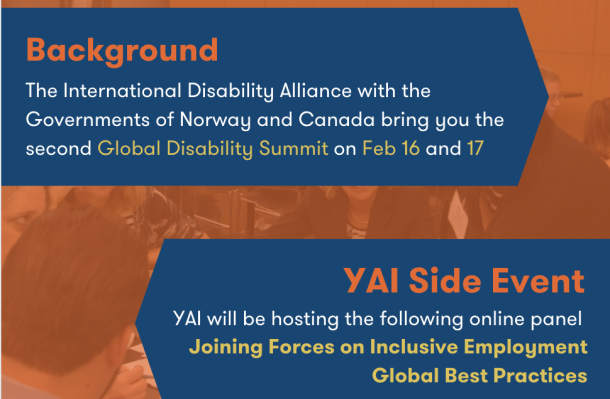Capacity-Building Expertise
With more than 60 years of experience, YAI’s staff of 4,000 operate over 300 programs that support children and adults with I/DD at every facet of their lives. We can support accessible global development by drawing upon the entirety of our expertise, which includes:
Developing Inclusive Support Systems
- Community-integrated living
- Vocational training and paid employment
- Accessible and inclusive healthcare
- Family supports
- Assessment and service eligibility
- Person-driven support planning
- Classroom education
Providing Education and Training
- Advocacy and human rights awareness campaigns
- Education for people with I/DD
- Family education
- Professional trainings
- Providing accessible information, using “easy read” and social stories
- Conference presentations and panel discussions
Implementing a Policy Framework—Roadmaps for Governments
- Develop an assessment structure
- Build a best practice service system
- Include the whole lifespan, from early diagnosis, to achieving personal life goals, to end-of-life rights and supports
Promoting Inclusion and Accessibility
Deinstitutionalization is a key step in building inclusive communities. For children, this means strengthening family supports and access to education. For adults, it means creating flexible, community-integrated living, working, and socialization opportunities. YAI has experience implementing programs of all scopes and sizes, taking specific cultural needs into consideration.
Creating Inclusive Communities
- Varied residential opportunities
- Healthcare services with providers who understand I/DD needs
- Employment opportunities
- Family support programs
- Classroom education for school-age children
- Recreational and cultural opportunities
Removing Barriers to Human Rights-Based Inclusion
- Changing minds—raising awareness for person-driven supports
- Education on identity, relationships, sexuality, and life skills
- Creating I/DD-accessible information
- Providing training and access to technology
Joining Forces on Inclusive Employment Global Best Practices
View the recording of YAI's February 17th, 2022 side event. The presentations discuss the relationship between inclusive education, community supports, and employment efforts. They also focus on how to overcome a variety of barriers when creating individualized employment services while enabling companies to becoming successful inclusive employers.


